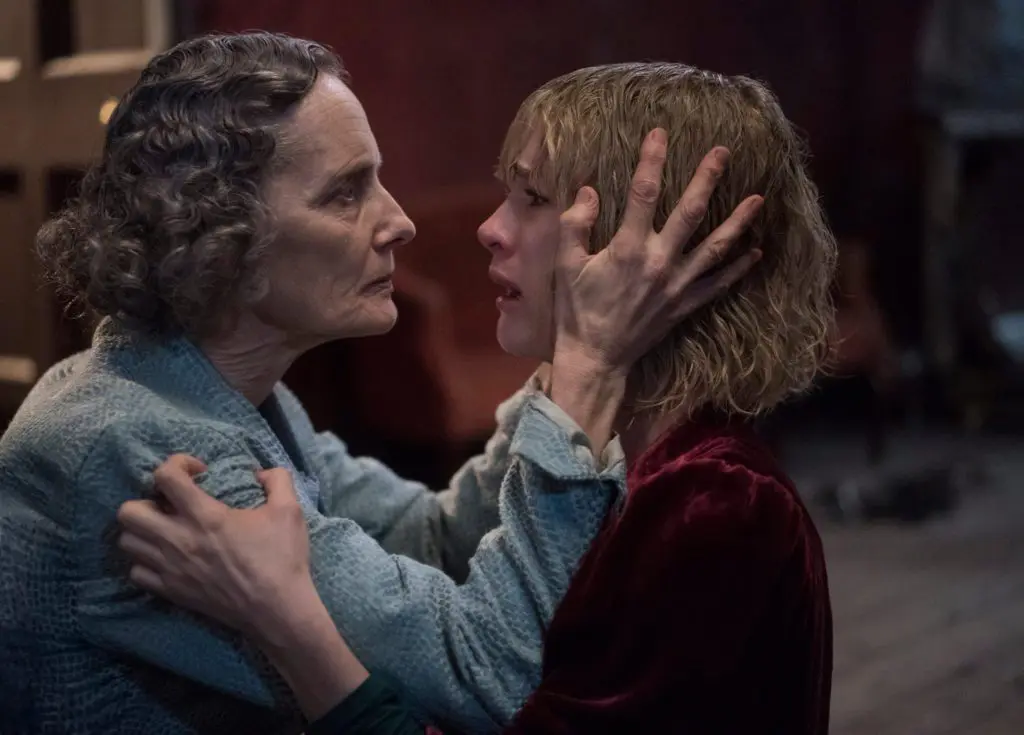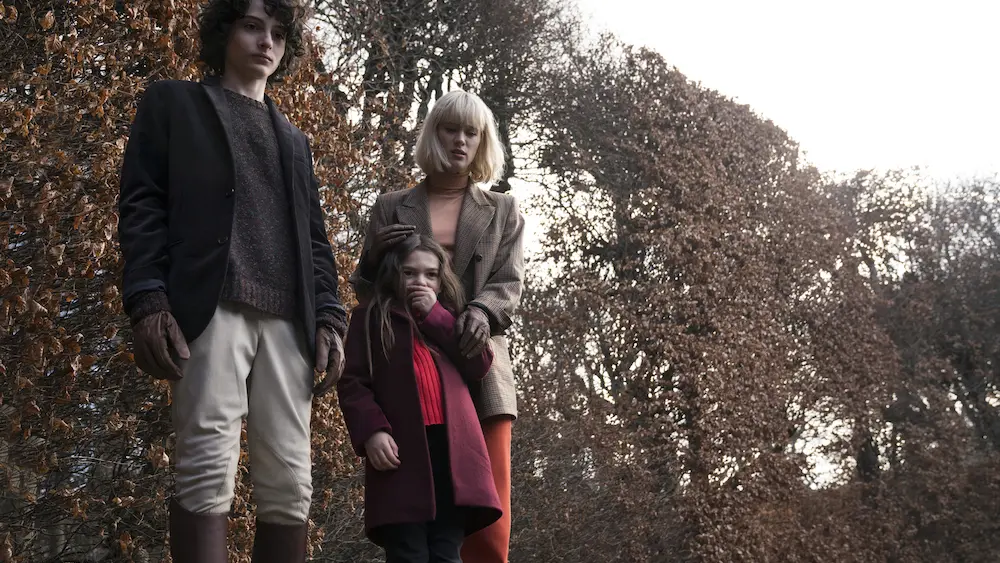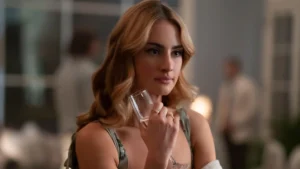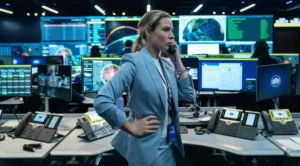Summary
Another annual dose of mediocre January horror that stays afloat for a while, before completely sinking like a rock.
The Turning is yet another adaptation of the Henry James novella The Turn of the Screw (none of which I am intimately familiar with, including the original story — please don’t hurt me, I’ll watch The Innocents one day), this time placed smack-dab in the mid-90s, conspicuously announced in an early scene in which Mackenzie Davis’ character Kate watches the death of Kurt Cobain announced on television. Kate is hired for a live-in position tutoring and watching over two young kids who have recently lost their parents, at their huge, stately, and totally not completely haunted by ghouls estate that seems to be perpetually shrouded in overcast clouds and fog. But as Kate’s residence proceeds, she quickly realizes that the antagonistic housekeeper and the angsty jackass teenage boy who seems to hate her guts are the least of her worries and that something more supernatural in nature is at play.
A forgettable trailer and a release date right in the middle of the annual January cinematic dry spell were never good signs as far as predicting the quality of The Turning, but I wanted to give it the benefit of the doubt, and it got that benefit from me for a sizeable chunk of the runtime. The majority of what’s offered here isn’t anything revolutionary in the Spooky Haunted Estate cinematic canon, but much of it is handsomely shot, appropriately moody, and often genuinely creepy. Director Floria Sigismondi seems to try to toe a line between a subdued, supernatural gothic mystery and modern-day haunted house thrill ride scares. It doesn’t exactly pan out, but there are notable moments of genuine unease and tension; a sequence in the back half where Kate plays flashlight tag with the kids I found to be particularly adept at keeping the viewer on their toes while also managing to subvert expectations by the end of it. Then again, you also have a laughable sequence in which Kate wakes up from a dream inside another dream. There are no makings of a modern classic here, but there is some fun to be had if you find this kind of tolerable, mostly forgettable studio horror filmmaking as weirdly comforting as I do to see at a matinee in the middle of a weekday.

Davis meets exactly what the script of The Turning calls for with her performance — which isn’t a knock against her as it doesn’t exactly do her any favors as far as character depth — and Brooklynn Prince is proving herself to be one of our finest young performers. She plays her character with a level of sensitivity, naturalism, and nuance that is hard to find in many adult actors, let alone a child. As for Finn Wolfhard, I do not think he is a bad actor by any means but his role here dips into laughable almost-parody territory. He’s the ultimate angsty teen, wearing a revolving selection of grungy blue jeans and tasteful sweaters, shifting between looking sullen in his room while he listens to records and looks out the window or looking smarmy and annoying while vaguely threatening Kate. A scene where he stomps a fish to death after finding it being eaten by a crow outside a Koi Pond and dramatically declares that, “Nothing should have to suffer” accidentally becomes darkly comedic.
Most of this is fine and good and predictable for this type of film, and much of the movie is just that: perfectly whatever and formulaic. Except for the ending. This film’s ending is the most insane faux-ambiguous, miscalculated non-ending I’ve seen in a film in a long time. As the credits rolled I frankly had no idea what happened. The baffling final sequence begins with a cop-out and ends up in a state of perplexity and bewilderment, both by the protagonist and the audience. In that sense, one could say the astonishingly vague final moments are the point, though I’d be inclined to disagree. Nothing about it feels appropriately set-up; elements about it are clearly meant to have been foreshadowed throughout the movie but the most important components of it aren’t given any true significance beforehand, resulting in a film with no conventional closure and no effective ambiguity, even as it tries to go for both. It’s so out of place and weird it literally feels like there was a mistake.
With that, the trajectory of The Turning is essentially that of a so-so January ghost movie that carries itself well enough for a lot of the runtime and then runs headfirst into a wall. There’s enough here to satisfy the most desperate haunted house movie junkies but even they will be left slack-jawed. My familiarity with The Turning of the Screw may be basically non-existent, but I know enough to have a feeling that Henry James is turning over in his grave.




